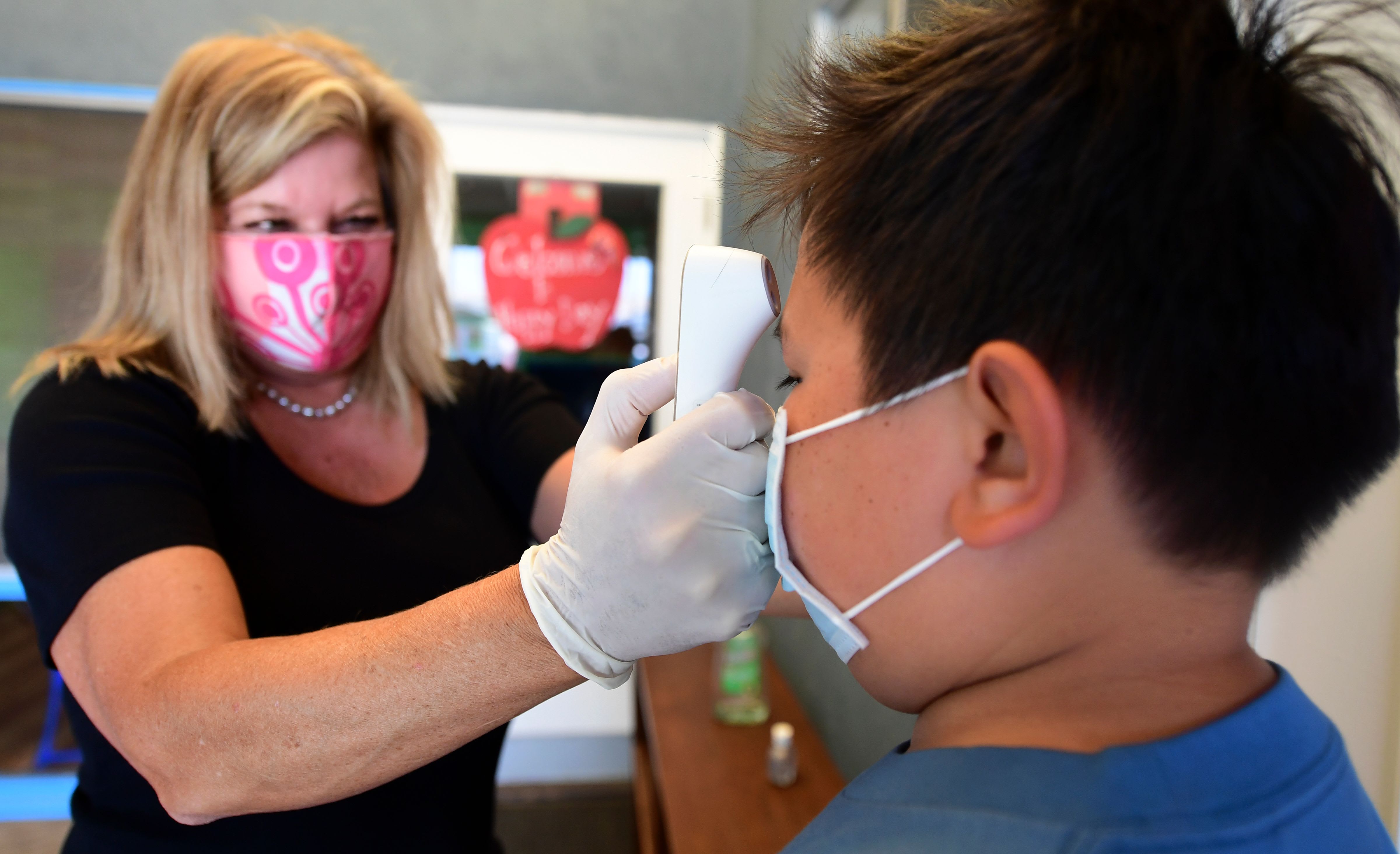
Children in the U.S. are more likely than kids in other countries to have underlying conditions that place them at an increased risk of becoming severely sick with Covid-19, complicating the U.S. debate over how and whether to reopen schools this fall, former Food and Drug Administration Commissioner Dr. Scott Gottlieb said Monday.
President Donald Trump has been pressuring U.S. schools to reopen this fall, tweeting last week that schools in “Germany, Denmark, Norway and Sweden, along with many other countries” were “open with no problems.” But Gottlieb said Monday it’s difficult to compare the U.S. to most of those countries because they were able to bring the level of daily infection down to a manageable degree before reopening schools.
The outbreak in the U.S., in contrast, continues to set daily new records as the Trump administration ramps up pressure on local officials to commit to reopening schools. The U.S. is suffering from the worst Covid-19 outbreak in the world with more than 3.3 million confirmed cases so far and at least 135,200 deaths, according to data compiled by Johns Hopkins University.
“The only country that had schools open against a backdrop of a fair degree of spread was Sweden, and that’s what everyone extrapolates from,” he said on “Squawk Box.” “We didn’t study that systematically. We don’t know how many kids were really infected.”
Young people are much less likely than elderly people to become severely sick and die of Covid-19, though some children have died of the disease. Health officials also have warned of severe complications in children that appear to be associated with the virus as well as possible long-term health effects.
It remains unclear exactly how the virus affects children and whether young people, many of whom never develop symptoms or develop only mild symptoms, play a primary role in spreading the virus. Because of limited testing among young people, scientists have struggled to draw firm conclusions about how easily young people might pass the virus on to one another and to older, more vulnerable people.
Principal Pam Rasmussen (L) takes the temperature of arriving students as per coronavirus guidelines during summer school sessions at Happy Day School in Monterey Park, California on July 9, 2020.
Frederic J. Brown | AFP | Getty Images
Another concern that ought to be considered when deciding whether and how to reopen U.S. schools, Gottlieb said, is that young people in the U.S. are generally sicker than young people in Sweden, for example. Regardless of age, other underlying conditions more prevalent in American kids puts them at a greater risk of a severe Covid-19 infection.
“We have more co-morbid illness among young people in this country — more asthma, more obesity, more diabetes — so there is going to be higher risk with our school-age population,” Gottlieb said. Those so-called co-morbidities have resulted in more severe illnesses and even death in Covid-19 patients across all age groups, scientists have found.
The Centers for Disease Control and Prevention says 18.5% of U.S. children between ages 2 to 19 suffer from obesity, or about 13.7 million children. About 6 million children under age 18 have asthma, according to the CDC, and the agency notes that Black children suffer from asthma at more than double the rate of White children. And the CDC says about 193,000 people under age 20 in the U.S. have diabetes.
Those risk factors, along with the increasingly pervasive level of spread across the country and particularly high levels of infection in a handful of so-called hot-spot states, will complicate the reopening of schools in the fall, Gottlieb said.
“I think it’s going to be very hard for certain states or certain cities right now to reopen on time, and in fact we’ve already seen Arizona delay the reopening of their school system, and they might have to do it again,” he said. “It’s going to be much easier to open schools this fall in Massachusetts or Maryland or Michigan than in Miami or Houston right now.”
Correction: Gottlieb said U.S. kids have more “co-morbid illnesses” than children in other countries, putting American students with the coronavirus at a higher risk. An earlier headline overstated his comments.
Disclosure: Scott Gottlieb is a CNBC contributor and is a member of the boards of Pfizer, genetic-testing start-up Tempus and biotech company Illumina. He also serves as co-chair of Norwegian Cruise Line Holdings’ and Royal Caribbean’s “Healthy Sail Panel.”
Source: CNBC
